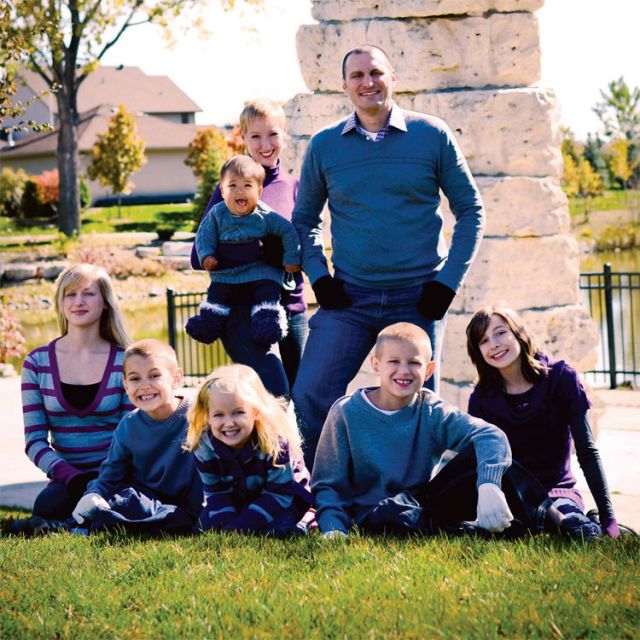Jeff Watson, who describes himself as pro-life and an Evangelical Christian — and was himself adopted — says the tax credit was contained in this spring’s federal budget and allows families considering adoption to claim more pre-adoption expenses than previously allowed.
Watson, the MP for Essex, and wife Sarah have become committed to adoption after adopting their youngest child, Beatrice, from Nunavut, a year and a half ago.
The family now has six children (the other five are biological) and Watson says Beatrice “may not be our last” adopted child.
The couple had originally thought of adopting from China. But Sarah became pregnant and, with the 2008 Beijing Olympics, China, embarrassed by its one-child policy — the primary reason for international adoptions — started restricting adoptions.
“So we thought perhaps that specific dream was over,” the MP said.
The couple were then told of a child in Iqaluit.
The child’s great grandmother had intervened. “The original plan was to abort the child,” Watson said.
Jeff and Sarah travelled to the city and “missed the birth by six minutes — we couldn’t get a cab quickly enough to get over there.”
Watson is pro-life but says adoption in this case is “peripheral” to the adoption-versus-abortion argument.
The immediate problem, he says, is that there are far too few people adopting, and thousands — perhaps as many as 40,000 — adoptable children, languishing in temporary care situations.
He says figures vary but there are only between 2,000–5,000 adoptions each year. The expanded tax credit is a first attempt to address this, he said.
Part of the problem is the cost of adoption.
The previous tax credit covered the costs after a child was placed, such as legal expenses. It didn’t include home study and extensive preparation programs such as PRIDE (Parent Resources for Information, Development and Education) which, especially if offered through private agencies, can be “very costly.”
This fall Watson will introduce a parliamentary motion calling for a five-part approach to encourage adoptions, including improved measurement of just how many children are parentless, boosting adoptions to more than 5,000 a year, and improving adoptive parental support.
While Watson’s concern is tangential to the more direct pro-life adoption stance, he says there are indeed similarities.
“There’s a consistency of values,” he said. “There are a number of issues that fall into the pro-life basket.”
But the new emphasis on adoptions could have wider repercussions.
He said if adoption is “significantly more viable, more kids are being adopted, perhaps a young mother who goes into a crisis pregnancy centre, may also say, ‘well, this child isn’t going to languish in care if I decide to carry to term’ — that may become an option.”
(Stang is a freelance writer in Windsor, Ont.)

